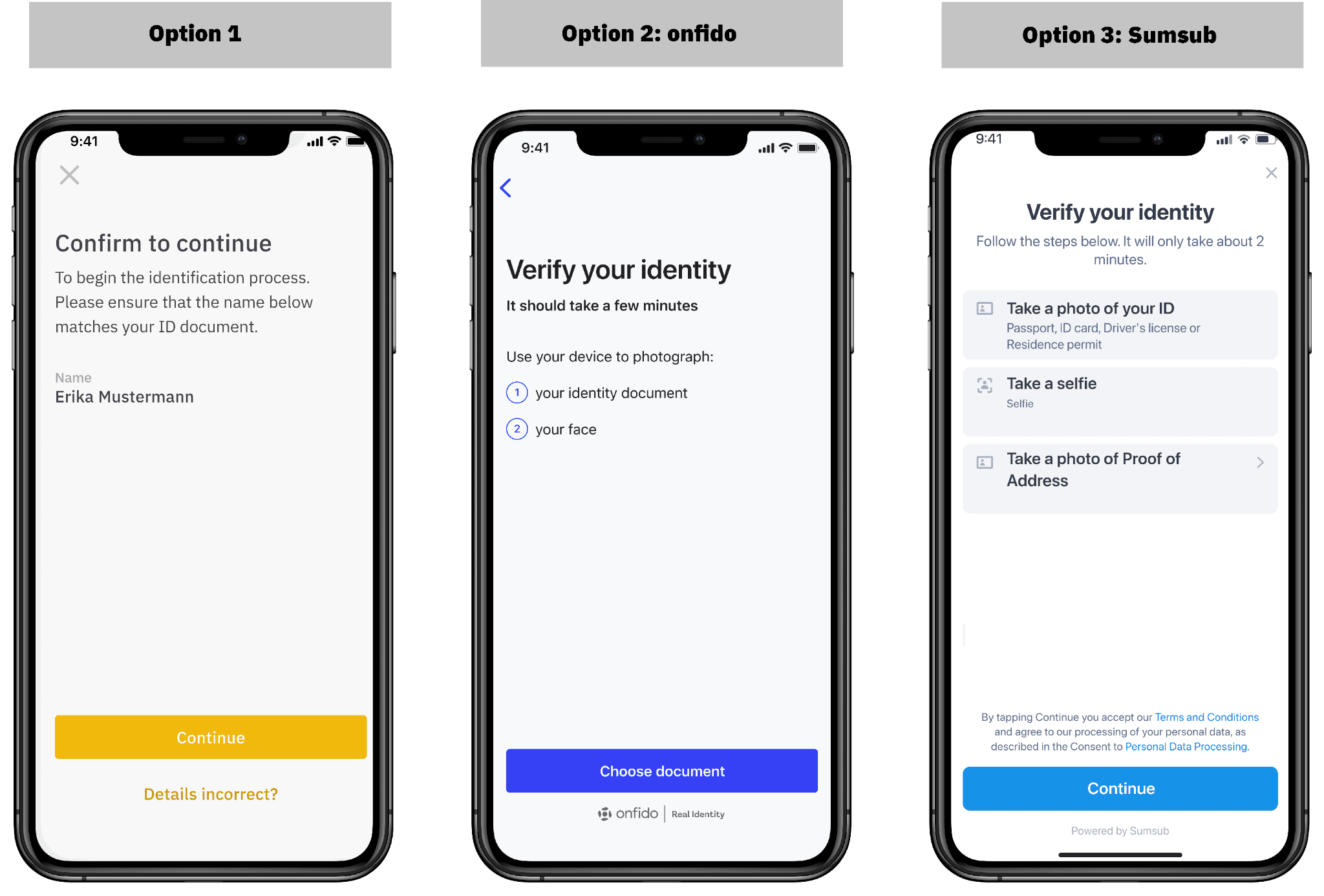Table of Contents
Introduction
Your National ID is more than just a piece of plastic or a digital record; it is a cornerstone of your identity in the modern world. Whether you're traveling, opening a bank account, or accessing government services, your National ID serves as a key identifier. Understanding its importance is crucial for navigating life's essential tasks.
In this guide, we will explore the multifaceted role of National IDs, why they matter, and how you can make the most of them while keeping your information secure. From the application process to its everyday uses, this article will provide a comprehensive overview of everything you need to know about your National ID.
As we delve deeper into the topic, you'll discover how this small card or digital credential impacts various aspects of your life. From legal obligations to technological advancements, your National ID is an indispensable tool in today's society.
Read also:Layla Jenner Videos A Comprehensive Guide To Her Content And Online Presence
What is a National ID?
A National ID is an official document or digital record issued by a government to its citizens. It serves as a primary form of identification and is often required for accessing essential services, verifying identity, and participating in civic activities. The format of a National ID varies by country, ranging from physical cards to digital credentials stored on smartphones.
Each National ID contains unique information about the holder, such as their full name, date of birth, photograph, and a unique identification number. In some countries, additional biometric data, such as fingerprints or iris scans, are also included to enhance security and prevent identity fraud.
Key Features of a National ID
- Unique Identification Number
- Personal Information (Name, Date of Birth, etc.)
- Photograph
- Security Features (Holograms, Watermarks)
- Biometric Data (in some cases)
National IDs are designed to be universally accepted within a country, making them a reliable and standardized form of identification. This standardization simplifies processes such as opening bank accounts, traveling domestically, and accessing government services.
Why is a National ID Important?
The importance of a National ID cannot be overstated. It is a critical tool for both individuals and governments, serving as a gateway to essential services and ensuring the smooth functioning of society. Below, we explore the key reasons why a National ID is indispensable.
1. Access to Government Services
One of the primary functions of a National ID is to provide access to government services. Whether you're applying for social benefits, registering to vote, or paying taxes, your National ID is often required to verify your identity. This ensures that only eligible individuals can access these services, reducing fraud and misuse.
2. Financial Transactions
When opening a bank account, applying for a loan, or conducting significant financial transactions, a National ID is typically required. Financial institutions rely on National IDs to comply with Know Your Customer (KYC) regulations, which help prevent money laundering and other illegal activities.
Read also:Pink Hearts Movies A Comprehensive Guide To Romance And Heartfelt Cinema
3. Travel and Immigration
While passports are the primary travel documents for international journeys, National IDs often serve as valid identification for domestic travel. In some regions, such as the European Union, National IDs can even be used for cross-border travel between member states.
4. Employment Verification
Employers often require National IDs to verify the identity and legal status of potential employees. This is especially important in industries that require background checks or security clearances, such as healthcare, education, and finance.
By ensuring that only qualified individuals are hired, National IDs contribute to workplace safety and compliance with labor laws.
How to Apply for a National ID
Applying for a National ID is a straightforward process, but the exact steps may vary depending on your country. Below is a general guide to help you navigate the application process.
Step 1: Gather Required Documents
Before applying, ensure you have the necessary documents, such as:
- Birth Certificate
- Proof of Address (Utility Bill, Lease Agreement)
- Passport-Sized Photographs
- Application Form (available online or at government offices)
Step 2: Submit Your Application
Visit the designated government office or submit your application online. Some countries have digitized the process, allowing applicants to upload documents and track their application status electronically.
Step 3: Pay the Fee
Most National ID applications require a processing fee. Payment methods may include cash, credit/debit cards, or online banking, depending on the country.
Step 4: Attend Biometric Enrollment (if applicable)
In countries that use biometric data, you may need to visit a specific center to have your fingerprints or iris scanned. This step ensures the uniqueness and security of your National ID.
Step 5: Receive Your National ID
Once processed, your National ID will be mailed to your address or available for pickup at the government office. Processing times vary, so it's advisable to apply well in advance if you need it for a specific purpose.
Common Uses of National ID
A National ID is a versatile document with a wide range of applications. Below are some of the most common uses:
1. Opening Bank Accounts
Financial institutions require a National ID to verify the identity of account holders. This helps prevent fraud and ensures compliance with anti-money laundering regulations.
2. Voting
In many countries, a National ID is required to register as a voter and participate in elections. This ensures that only eligible citizens can vote, maintaining the integrity of the electoral process.
3. Accessing Healthcare
National IDs are often used to access healthcare services, particularly in countries with universal healthcare systems. They help healthcare providers verify patient identities and maintain accurate medical records.
4. Traveling Domestically
While passports are required for international travel, National IDs are often sufficient for domestic flights or train journeys. They serve as a convenient form of identification for security checks.
5. Applying for Government Benefits
Whether you're applying for unemployment benefits, pensions, or housing assistance, a National ID is typically required to verify your eligibility.
Legal Implications of Not Having a National ID
While not all countries mandate the possession of a National ID, failing to obtain one can have significant legal and practical consequences. Below are some potential implications:
1. Limited Access to Services
Without a National ID, you may face difficulties accessing essential services such as healthcare, education, and government benefits. This can significantly impact your quality of life.
2. Employment Challenges
Employers often require a National ID to verify the identity and legal status of employees. Without one, you may struggle to secure formal employment, especially in regulated industries.
3. Legal Penalties
In some countries, failing to obtain or carry a National ID can result in fines or other legal penalties. This is particularly true in nations where National IDs are mandatory.
4. Difficulty Traveling
Even for domestic travel, a National ID is often required for security checks. Without one, you may face complications at airports, train stations, or border crossings.
How to Protect Your National ID
Given the importance of your National ID, it's crucial to take steps to protect it from theft, loss, or misuse. Below are some practical tips:
1. Store It Safely
Keep your National ID in a secure location, such as a wallet or protective sleeve. Avoid leaving it in easily accessible places like car glove compartments or unattended bags.
2. Avoid Sharing Information
Be cautious about sharing your National ID number or other personal information online or with unfamiliar individuals. Scammers often target this data for identity theft.
3. Report Loss or Theft Immediately
If your National ID is lost or stolen, report it to the relevant authorities as soon as possible. This can help prevent misuse and expedite the replacement process.
4. Use Secure Digital Storage
If your country offers a digital National ID, ensure it is stored securely on your device. Use strong passwords and enable two-factor authentication to protect your data.
Digital National IDs: The Future
As technology advances, many countries are transitioning from physical National IDs to digital versions. These digital IDs offer several advantages, including increased convenience, enhanced security, and reduced environmental impact.
Advantages of Digital National IDs
- Accessible via smartphones or other devices
- Reduced risk of physical damage or loss
- Enhanced security features, such as encryption
- Streamlined access to online services
However, the adoption of digital National IDs also raises concerns about privacy and data security. Governments must implement robust safeguards to protect citizens' information and ensure that digital IDs are accessible to all, including those without smartphones or internet access.
Frequently Asked Questions
1. Can I use my National ID for international travel?
In most cases, a passport is required for international travel. However, some regions, such as the European Union, allow the use of National IDs for cross-border travel between member states.
2. What should I do if my National ID expires?
Contact the issuing authority to renew your National ID before it expires. Renewal processes vary by country, so check the specific requirements in advance.
3. Is a National ID mandatory in all countries?
No, some countries do not require citizens to possess a National ID. However, having one is often highly recommended for accessing services and verifying identity.
Conclusion
Your National ID is a vital tool that facilitates access to essential services, ensures legal compliance, and protects your identity. By understanding its importance and taking steps to safeguard it, you can make the most of this critical document.
We hope this guide has provided you with valuable insights into the role and significance of National IDs. If you found this article helpful, please consider sharing it with others or leaving a comment below. For more informative content, explore our other articles on identity management and personal security.

